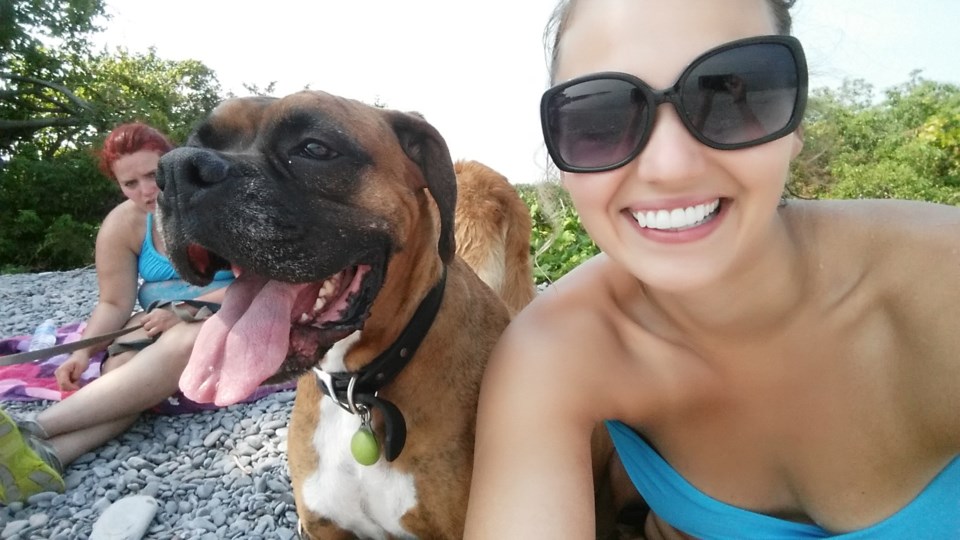A dangerous tapeworm that infects humans and dogs is advancing across southern Ontario according to research from the Ontario Veterinary College at the University of Guelph.
The presence of the Echinococcus multilocularis tapeworm is spread by dogs who consume the stool of coyotes and foxes that have eaten infected rodents. The foxes and coyotes don't get infected, however, their stools can contain a deadly infection called alveolar echinococcus (AE).
Dogs can pass AE to humans without displaying symptoms themselves. The AE in humans advances over many years and can cause tumours in the liver. AE can spread throughout the body and be fatal if left untreated.
Public Health Ontario added the Echinococcus multilocularis tapeworm to the diseases of public health significance in May 2018, which means that all human and animal cases have to be reported by doctors and vets.
“It typically takes five to 16 years after you get infected till you become sick,” said professor Andrew Peregrine, who conducted the study with PhD student Jonathan Kotwa and a team from OVC’s Department of Pathobiology.
“The problem is with people taking so long to become sick, you know there could well be people who got infected and it's going to take years before they're diagnosed,” said Peregrine.
Ontario was considered free of the infection until recently.
Peregrine said his team expected to see cases of AE in the same area where sick dogs are present but were surprised to see these cases in every part of southern Ontario.
“It's surprising because when we showed those dates to colleagues in Sweden who helped us with the study, they looked at the map and said you've had this a lot longer than you think you have,” said Peregrine.
“It's very surprising although the reality is in the last 12 months there have been six dogs diagnosed.”
In 2016, a Guelph dog named Bauer died from AE his body was later used for research at the OVC.
Bauer’s owner, Megan MacLusky, said after a series of trips to the vet after Bauer collapsed and was vomiting, he underwent surgery for the removal of a cyst in his liver and many more were found.
The results were sent to a lab in Sweden. It took a month to diagnose Bauer and he was found positive for AE and passed away a year later.
“He was just in so much pain,” said MacLusky.
“He must've eaten feces of an animal that had it. We used to go into the woods and we travelled across Canada and went on tons of hikes.”
Peregrine said the findings were surprising because most of the dogs had not travelled and most of the cases were in the Golden Horseshoe area so the question arose, Where are these eggs coming from?
“All of those dogs except one has never travelled, it's very suspicious,” said Peregrine.
That's when his team in Sweden told him to look into wild canids like foxes and coyotes.
“It specifically occurs in the wildlife. Foxes and coyotes and then the intermediate stage occurs in rodents,” said Peregrine.
“The bottom line is talking to your vet and discussing whether your dog is at risk of either of those and what you can do to help minimize that risk.
“It's on the radar for physicians in Ontario. Most people weren't even thinking about this when they went into the physician and showed clinical signs of liver damage,” said Peregrine.
Peregrine said the OVC is working with diagnostic clinics to develop tests to diagnose AE.
“Now that we know we have it, there's an urgency to have these tests available because it's not practical to send samples over to Europe”
From her experience, MacLusky said it's important to be aware but not act out of fear.
“I would say be more cautious, especially the areas we live in Guelph, there are coyotes around and we know it,” said MacLusky.
